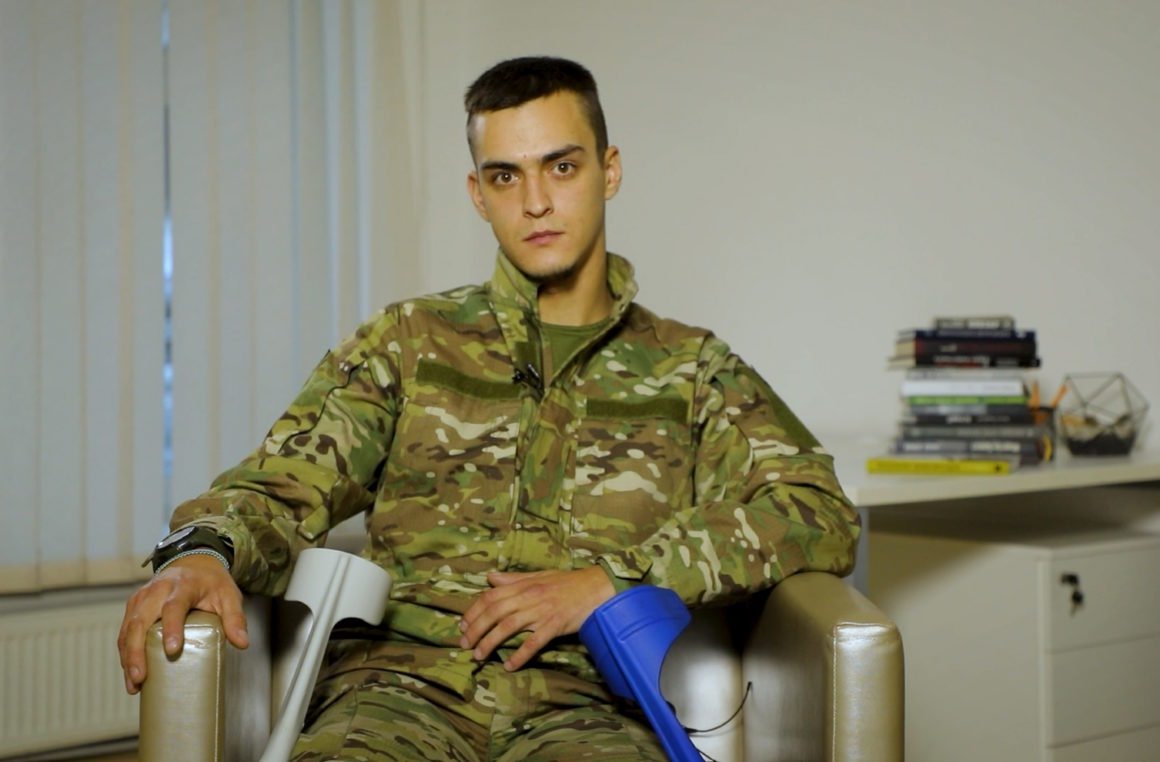A 23-year-old Russian citizen named Mikhail Pavlov, call sign “Pers” (Persian), is currently fighting for Ukraine after being recruited into Russia’s Storm-Z unit in April 2023.
Mikhail came from a poor family with few prospects. He and his brother basically grew up alone and had to fend for themselves. As a teenager he orchestrated an insurance fraud scheme that proved highly lucrative; he led a group of young people that staged vehicle collisions, intentionally damaged insured property, and submitted fraudulent claims to Russian insurance providers. Through these tactics, Mikhail’s gang collected significant payouts from the insurers for years.
“I came up with the scheme myself and put it into practice. And it worked with great success… Most Russian teens don’t want to study, they don’t do anything serious. Many do what I did just to get by,” he says in an interview.
A matter of conscience
Mikhail Pavlov was serving a six-year sentence at a maximum security prison in Ivanovo, Russia when he was approached in August 2022 to join the private military Wagner Group
, which was recruiting prisoners to fight in Ukraine. He declined to join the Wagner unit, which was promising pardons and high salaries to convicted murderers and robbers willing to become assault troopers.
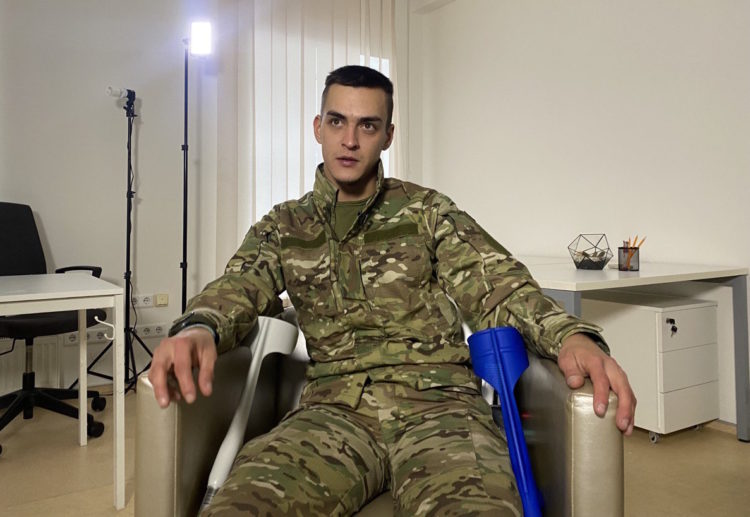
Leaders of the Wagner private military force arrived at his prison colony on 2 August 2022 to recruit inmates for combat in Ukraine.
“It was the first recruitment [of prisoners to the Wagner PMC for the war in Ukraine],” Pavlov recounts. He describes an elaborate recruiting event staged at the prison, stating: “They put on such a great performance!”
Wagner leader Yevgeny Prigozhin and commander Dmitry Utkin “flew in a black Mi-8 [helicopter], landed it next to the colony in the car park, and drove in with cars and weapons.”
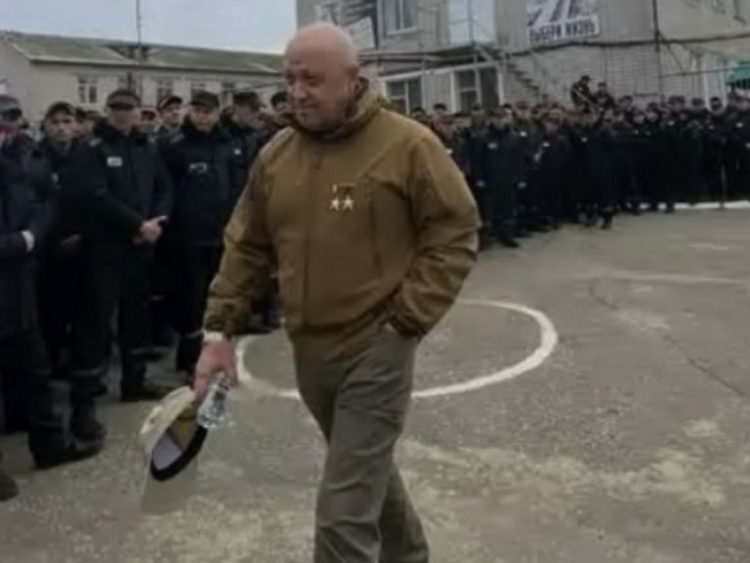
Of the approximately 1,200 prisoners held at the Ivanovo facility, Pavlov estimates 650 initially volunteered to join Wagner’s ranks, with 150 selected for combat roles in Ukraine. However, after six months, only about ten recruits from the colony remained alive… and 140 “sank into oblivion.”
In late April 2023, when the Russian Ministry of Defense launched a similar effort to recruit prisoners into a unit called Storm-Z, Pavlov saw an opportunity to escape and switch sides in the war.
“The plan was that I would join a unit of the Ministry of Defense and at the first opportunity, I’d run over to the Ukrainian side to fight. This was an important moment for me personally. I wasn’t going to hide or just escape from prison. I intended to fight for Ukraine - for reasons of conscience; it was a personal conviction,” he says.
Russian cons dispatched to front lines with little training or resources
After signing six-month contracts with the Russian Ministry of Defense’s Storm-Z prisoner unit
in April 2023, Pavlov and around 150 other inmates were loaded into Ural trucks and transported in a convoy to the occupied territory of Donetsk and Luhansk Oblasts.

“The most interesting thing is that when we were crossing the Russian border with Ukraine, the guys who were driving us didn’t invent or hide anything; they just said: we’re crossing the border with Ukraine, it can be dangerous here. There were no [Donetsk and Luhansk people’s] republics,” Pavlov recalls.
The convoy arrived at a makeshift training camp near the village of Mozhniakivka in Russian-occupied Luhansk, where Pavlov spent a month with little actual training or supervision by professional soldiers. The camp was staffed mostly by other convicts brought in as instructors from the front lines, and they showed little interest in their role. Access to weapons and equipment was largely unregulated.
An incident with a tank highlights the lack of leadership and surveillance - when convicts learning to drive a tank crashed into their commanding officers, badly injuring them. The tank disappeared the next day.
Pavlov used his time in the training camp to secretly gather intelligence on the unit’s strength and positions, planning to pass the information to Ukrainian forces when possible.
“I went to the UAV guys, downloaded their UAV app, downloaded maps that the Russians use...My phone was loaded normally,” he says.
His unit prepared daily and was eventually deployed for an assault near Torske in Donetsk Oblast.
“We were driving through Sievierodonetsk and saw locals running out into the street towards our convoy and shouting at us: ‘Bastards, go away, we’ve had enough; we don’t want you here! Why did you come here?’ I’m in the last Ural vehicle, and I see this. The platoon commander, the convict who arrived with me, starts to shout loudly that they’re traitors!”
During the chaos of an artillery strike, Pavlov tried to escape towards the Ukrainian lines but was unable to get away. His unit was then transferred to a tank training ground in Urzuf, Berdiansk sector, where the Russians were expecting a Ukrainian breakthrough. Stationed with 36 other felons near Urzuf without food or ammunition, he again used the assignment as a chance to scout Russian emplacements, planning another escape attempt.
“I told the prisoners in the group: you guys dig, and I’ll go get everything we need. And so I went around collecting information about our positions - where the UAVs are sitting, where the drones are launched, where the mortar is fired from, where the reserve tanks are coming from...” Pavlov mapped it all, waiting for an opening.
Defection and enlistment in the Russian Volunteer Corps
Pavlov underlines that the majority of Russian soldiers in the Storm-Z prisoner unit were convicts - “robbers, murderers, thieves” - with few professional reinforcements besides some reconnaissance and UAV operators. He says that the Russian Ministry of Defense treated them as expendable.
Military: Russia lost 5,000 troops near Avdiivka, Mariinka in two weeks
“What was the attitude towards us? We were still prisoners, but holding weapons. No one cared whether we lived or died,” Pavlov states. “One of the unit’s main tasks was combat reconnaissance. They would send 40 people to the combat zone; these men were killed, and so they were able to find out what the situation was. Men were sent forward - 20, 30, 40, and only five came back.”
So-called military “barrier units” were stationed behind the front lines to prevent the convicts from retreating, though Pavlov only spotted them from a distance. On 26 June, he and another convict slipped away towards Ukrainian trenches. Approaching Ukrainian lines, Pavlov deliberately let his companion walk ahead and conspicuously dropped his rifle to indicate surrender.
Moments after Ukrainian soldiers jumped out to apprehend them, Russian artillery began shelling their position, killing Pavlov’s companion. Brought behind the lines by a Ukrainian officer, Pavlov offered the intelligence he had gathered on Russian positions and expressed his desire to switch sides.
“I came here to surrender, to go over to your side and fight,” he told them.
The Ukrainian commander listened to him and said: “I don’t believe you, of course, but we’ll figure it out.”
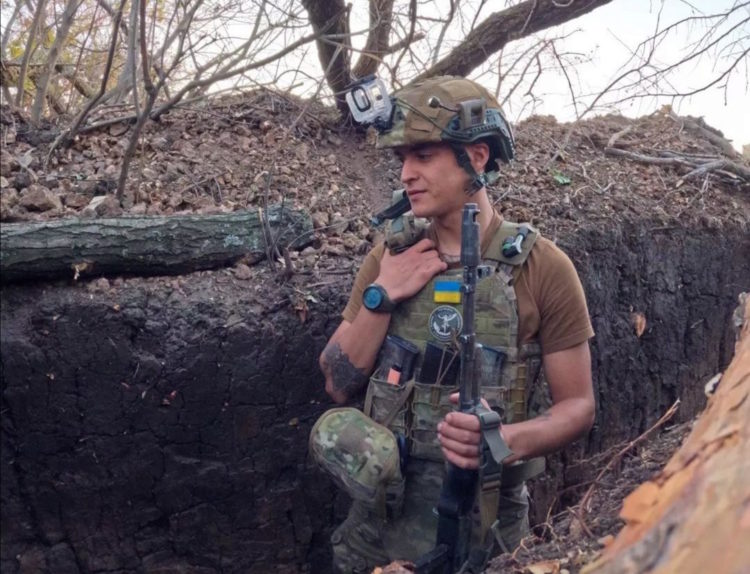
Pavlov soon joined the Russian Volunteer Corps
fighting alongside Ukrainian forces. Referring to himself as a “legionnaire” and using the call sign “Pers,” he has already seen active combat multiple times, including being wounded by shrapnel during an assault near Donetsk.
“During all this time, I fought in Svatovo and in the Donetsk sector, where I received a shrapnel wound from an F-1 grenade. It was an assault operation; we had to recover a trench and push the enemy back, which we did successfully,” he says.
Recovering in Kyiv from battle wounds, Pavlov plans to swiftly return to combat alongside his Ukrainian comrades-in-arms.
“As soon as I recover, I’ll go back into battle,” he affirms. “I didn’t come here for Ukrainian citizenship...My goal is to help people here who, in my opinion, have already suffered enough.”
Pavlov insists his motivations are ideological and he is not looking for praise or approval. “I don’t agree with my compatriots committing such arbitrary actions in a foreign country,” he explains. “And all I can do is give my life. I do it consciously; I think it’s the right thing to do.”
Having severed contact with his pro-Kremlin relatives in Russia, Pavlov now considers his fellow Ukrainian fighters his real family. His entire future is tied to the Russian Volunteer Corps opposing Putin’s invasion.
“I’m not asking anyone to respect me for this story,” Pavlov says, regarding his extraordinary journey from Russian prisoner to Ukrainian soldier. “But it happened to me; I did it. And now I feel in my place."
Mikhail Pavlov hopes his story will convince other Russian prisoners that it is possible to defect and join the thousands of Russians already fighting for Ukraine.
He bears a symbol of his liberation from Russian incarceration and subsequent service in Ukraine - a tattoo of a broken noose around his neck.
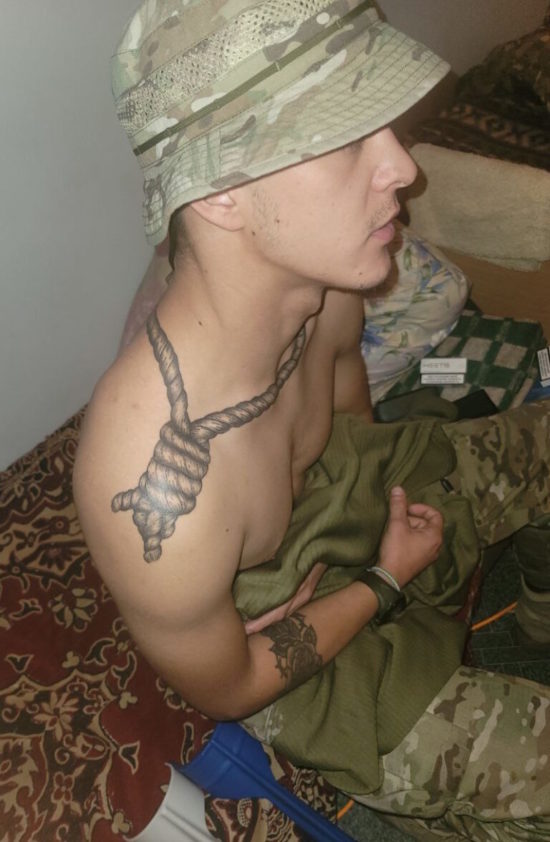
Russia’s Storm-Z penal military units
The existence of Russia’s Storm-Z penal military units was first uncovered in April 2023 through captured documents. Modelled on the Wagner Group’s penal recruitment, Storm-Z members are recruited from prisons with sentence reductions and pay incentives. Assessed to support fatigued frontline troops, each 100-man company receives minimal training before deployment, namely in urban fighting around Bakhmut and Avdiivka.

Storm-Z fighters often report incompetent commanders, faulty equipment, and having to walk through minefields for supplies. Suffering from low morale, they surrender readily when possible. Stationed ahead of regular army units acting as barrier troops authorized to shoot retreating forces, Storm-Z units sustain 40-70% casualties attacking Ukrainian positions around Avdiivka.
UK intel: Russian Shtorm-Z convict soldiers deployed with unhealed wounds
During Yevgeny Prigozhin’s Wagner Group rebellion, some Storm-Z units pledged loyalty to Wagner to help topple military leadership. But after Prigozhin withdrew his convoys outside Moscow, these units accused him of betrayal. Their commanders now punish disloyal units. Overseen by Colonel General Yevgeni Burdinskiy of Russia’s Main Organizational and Mobilization Directorate, the Storm-Z penal units face widespread leadership, logistical and morale deficiencies that contribute to high casualties on the most intense parts of the frontline. Their uncertain loyalty also poses risks, as evidenced by friction during the Wagner Group rebellion.
Related:
- UK intel: Russia depends on convicts in Ukraine offensives
- British Intel: Ukraine regains Stepove amid fierce battles for Avdiivka
- Russia increasingly frees convicted killers to fight against Ukraine – WP
- Media: Russia uses prisoners as cannon fodder in Ukraine
- Military: Russia lost 5,000 troops near Avdiivka, Mariinka in two weeks

